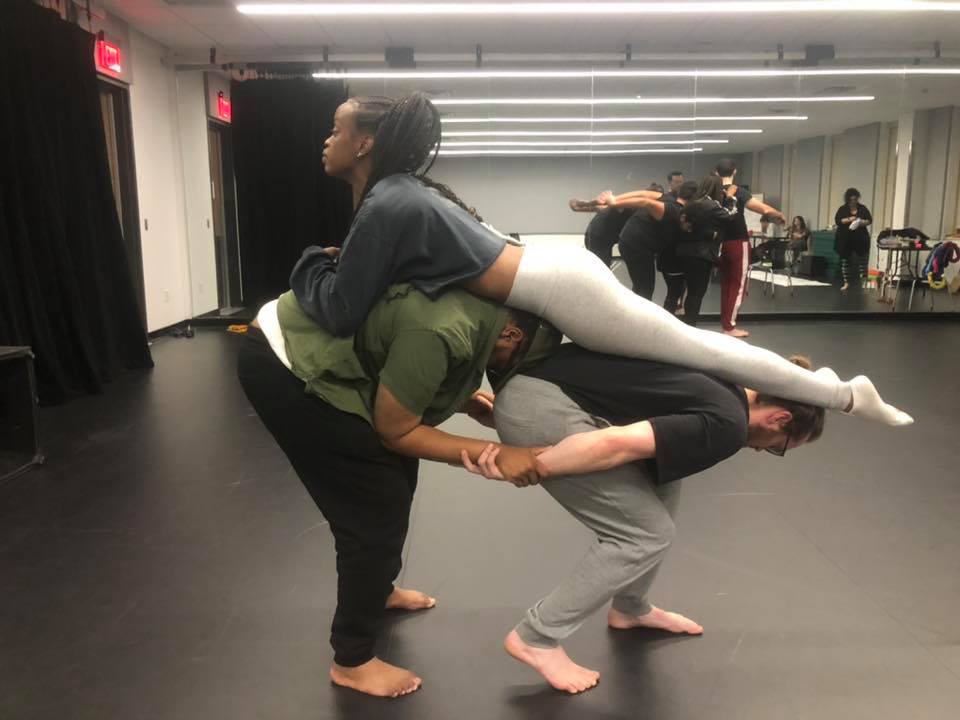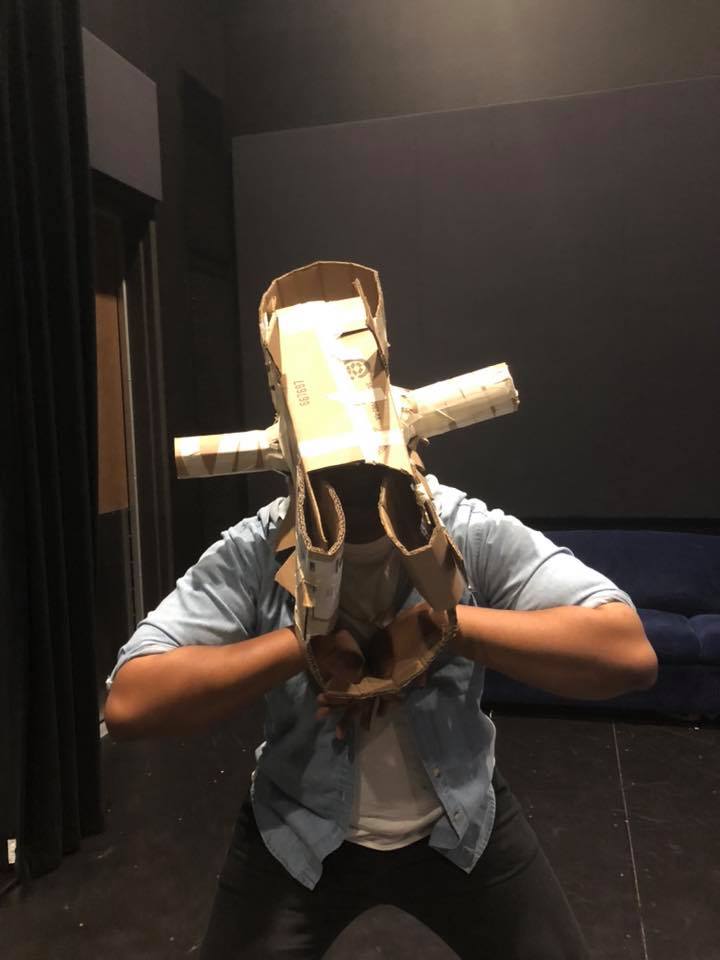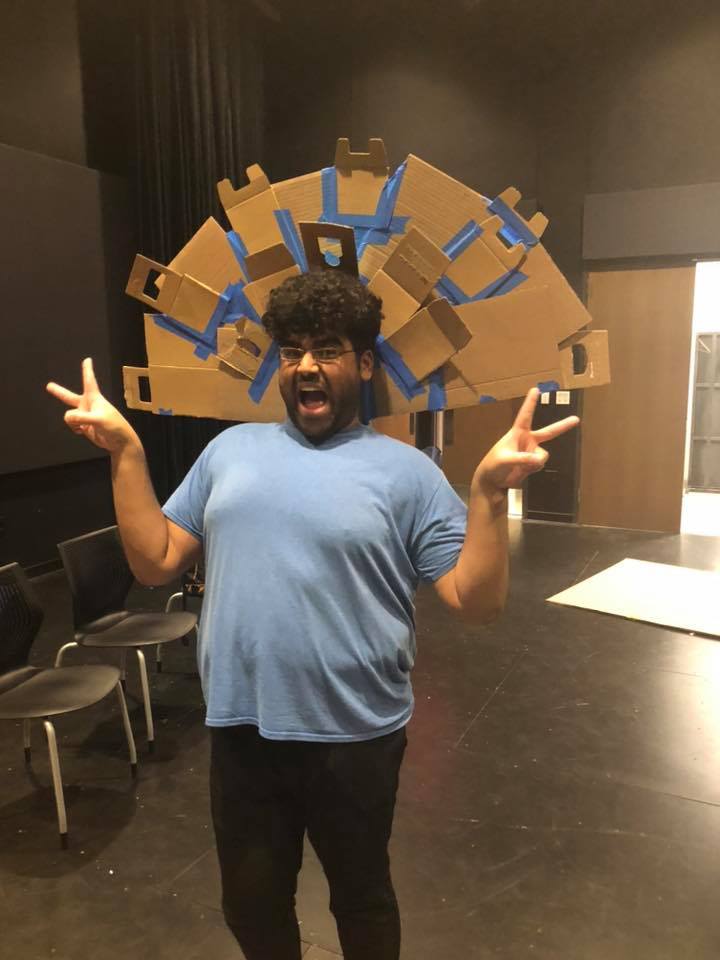This time of isolation and distancing has proved to be a great challenge to artistic minds everywhere. Among those is Ryan Fay, a third-year MFA student in the Texas Tech theatre department. Before the social distancing guidelines for COVID-19 were implemented, Fay had been hard at work on his thesis project: devising an adaptation of Jungle Book for the stage, based on the famous classic by Rudyard Kipling. Fay defended his thesis in early March before the school switched to online courses, the end of a long journey that began years ago:
"I told the faculty when I got to Tech that I wanted to do an original adaptation of The Jungle Book because the idea had been living in my head for so long. I wanted to do a directing project that would allow me to explore the movement and ensemble work that I love."
 Fay had the idea for Jungle Book several years ago while working with an aerial circus company called Nouveau Sud.
He hoped to turn the story into a show where each animal would be represented by a
different aerial act. Over time, the idea morphed and changed into what was created
at TTU:
Fay had the idea for Jungle Book several years ago while working with an aerial circus company called Nouveau Sud.
He hoped to turn the story into a show where each animal would be represented by a
different aerial act. Over time, the idea morphed and changed into what was created
at TTU:
"The cast was half recruited and half traditionally cast. The designers and production team are mostly people I have developed working relationships with during my time here at TTU; the show wouldn't be what it is without those connections."
The play was also slated to be a co-production with Lubbock Community Theatre, who would host performances in their space with the cast devising the piece as an ensemble:
"Devised Theatre can have a slightly different meaning depending on who you ask. Devising is essentially a process where a group of performers creates an original play. There are many different ways to devise and each group usually comes up with their own way of working. I'm not precious about labels, but I have been started using the terms 'generative work' and 'ensemble creation' which are broader and I think include a larger range of theatrical work."
 The style of the piece is a very physical and non-naturalistic theatre with the actors
embodying animals, sometimes crawling on all fours. Actors change characters in front
of the audience and work together to create the aesthetic.
The style of the piece is a very physical and non-naturalistic theatre with the actors
embodying animals, sometimes crawling on all fours. Actors change characters in front
of the audience and work together to create the aesthetic.
"We created a list of the essential scenes in the story and every day I gave the ensemble 30 minutes to create a version of one of the scenes," says Fay. "We did this for almost a month, and by the end of it we had made over fifty scenes. After we created all this material I edited us down to roughly twelve final scenes that told the story and assigned actors the parts they would play in the final production."
 Despite the present circumstances and limitations of the COVID-19 response, Fay remains
optimistic:
Despite the present circumstances and limitations of the COVID-19 response, Fay remains
optimistic:
"The whole team has worked too hard for us to just put this thing away. I've recently been in touch with the production team, and thankfully, the show is not defunct I am currently looking at alternatives to our originally scheduled performance, including live streaming the show or performing next year, or whenever people are allowed to gather again. Be on the lookout for news about Jungle Book, because we will be back."
